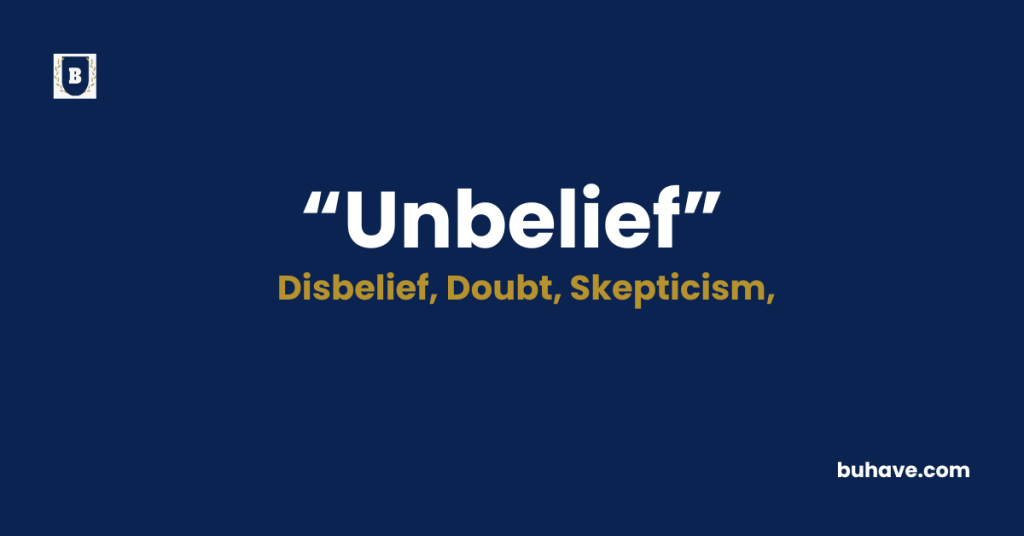The word ‘Unbelief’ (Noun) refers to the absence of belief or trust, especially in religious or philosophical contexts. In this guide, you’ll learn the full definition, synonyms, antonyms, etymology, and real-life examples of how to use ‘Unbelief’ correctly in sentences.
Unbelief Explained in Depth
A complete and detailed guide to the word ‘Unbelief’ including meaning, definition, examples, etymology, synonyms, and antonyms.
Meanings of Unbelief
Unbelief means a lack of faith, trust, or acceptance of something as true. It is often used in religious discussions to describe the absence of belief in a deity, doctrine, or spiritual truth, but it can also apply to other areas where doubt or rejection is involved.
Definition
Unbelief is a noun that refers to the state or condition of not believing—especially in a religious, spiritual, or philosophical sense. It describes the rejection, absence, or suspension of belief in a claim, idea, or authority.
Etymology
The word “unbelief” comes from Middle English, formed by combining “un-” (meaning “not”) and “belief.” It has been in use since the 14th century, often in theological or philosophical contexts to denote the absence or denial of belief.
Example Sentences
- Her unbelief was not due to rebellion but a genuine struggle to understand faith.
- The speaker addressed the challenge of unbelief in modern society.
- Unbelief can be a starting point for seeking deeper truth.
Unbelief Synonyms
- Disbelief
- Skepticism
- Doubt
- Nonbelief
- Agnosticism
- Irreligion
- Atheism
- Mistrust
- Incredulity
- Faithlessness
Unbelief Antonyms
FAQs about Unbelief
Here are some frequently asked questions (FAQs) about the word “Unbelief”
1.What does “unbelief” actually mean?
“Unbelief” refers to the absence or rejection of belief, often in a religious or philosophical context.
2.Is unbelief the same as doubt?
Not exactly. Doubt suggests uncertainty or questioning, while unbelief is a firmer state of non-acceptance or denial of belief.
3.Is unbelief always about religion?
No, unbelief can apply to any context where belief is expected—such as philosophy, politics, or even trust in others.
4. Can unbelief change over time?
Yes, people may shift from unbelief to belief or vice versa depending on their experiences, knowledge, or personal growth.
5. Is unbelief considered negative?
It depends on the context. In religious settings, it may be viewed negatively, but in other areas, it may reflect critical thinking or personal integrity.

















